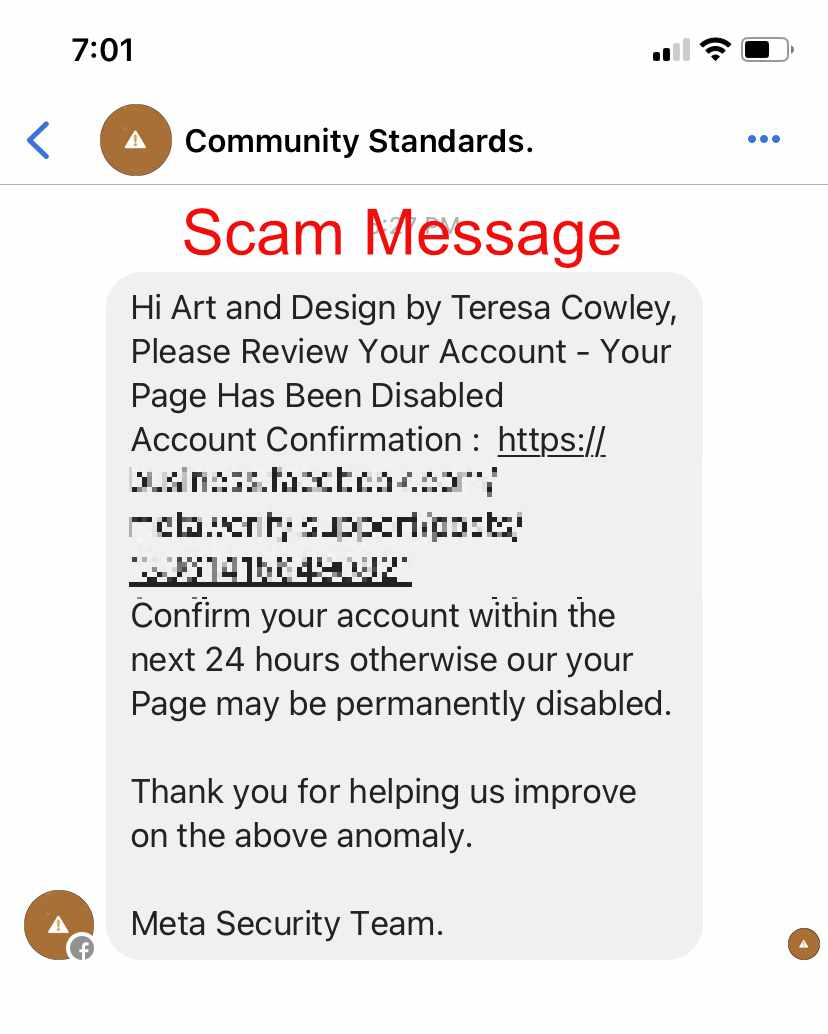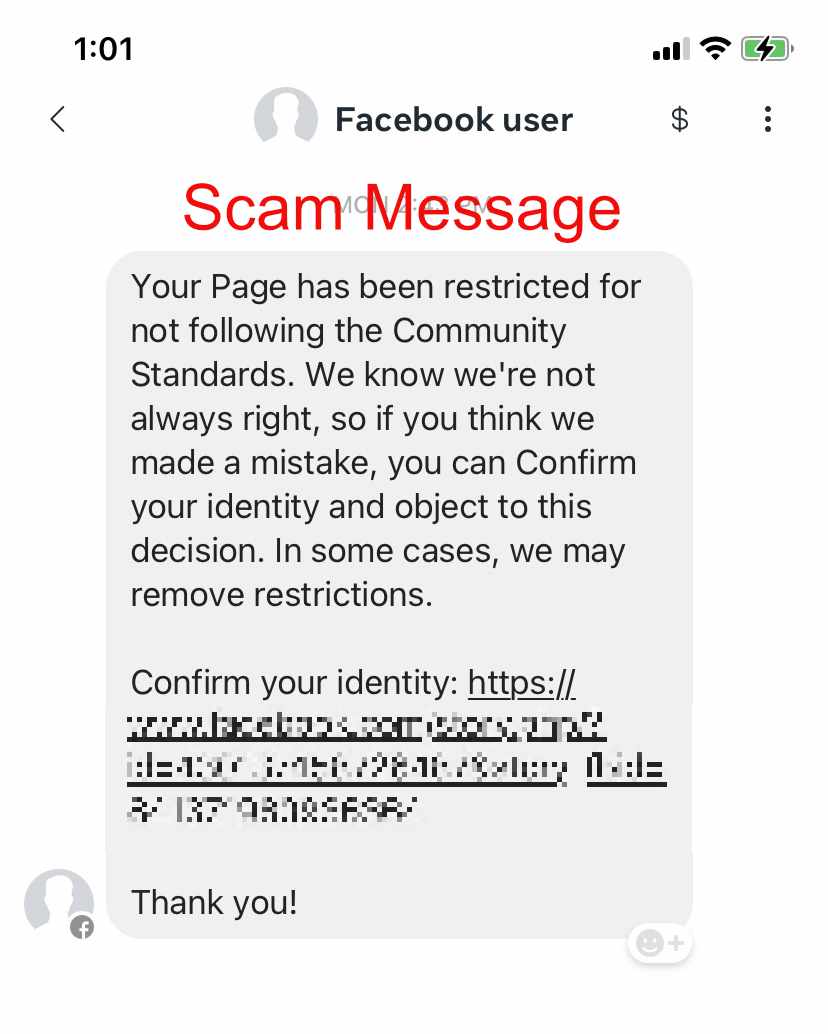Stay One Step Ahead of Scammers: The Meta Security Team Scam Exposed!

Today, I’ve got a cautionary tale to share about a sneaky online scam that’s been making the rounds. Recently I’ve had a message on Facebook Messenger allegedly from the Meta Security Team asking me to review my account and saying my business page was disabled. It gave a link and said that if I didn’t confirm my account within 24 hours, my account may be permanently disabled.
It caught me off guard at first because in my opinion, there seems to be a lot of people facing Facebook account restrictions for no apparent reason lately. The first thing I did was check my page. It was still active and was working properly. Turns out it’s yet another scam.
In reality, Meta (formerly Facebook) would never pull such a stunt. They’d never disable your account without giving you a heads-up, and they certainly wouldn’t ask you to click on some sketchy link to confirm your identity. This scam preys on our fear of losing access to our precious Facebook accounts.
What Does the Meta Security Scam Message Look Like?
It could be in email form, or in my case, a message on Facebook Messenger. Here are some screenshots of what I received. This was on my business page – not my personal profile. It happened twice so far, actually. Both are different but with the same intention. To attempt to trick me into believing the Meta Security Team Scam. They’re trying so hard, aren’t they?

This one was sent days later.

How The Meta Security Team Scam Works:
The scammers are crafty, and they send out these bogus messages via email or direct Facebook messenger to thousands of potential victims. They go all out to make it look like the message is coming straight from Meta’s Security Team, trying to earn your trust.
Now, if you make the grave mistake of clicking on that “Account Confirmation” link, you’ll be taken to a fake website that’s playing dress-up as the real Facebook login page. But guess what? It’s all under the control of those cunning scammers.
When you enter your username and password on this fake page, the scammers strike gold. They capture your login credentials and gain access to your actual Facebook account, along with all your personal information.
And it gets worse. Sometimes, that fake confirmation page might pull some extra tricks:
It might ask for more of your personal or financial info, which could be used for identity theft. It could also slyly download malware onto your device when you click the link, opening the door for the scammers to access sensitive files on your computer. Or it might lead you to some shady websites that try to install viruses or, worse, swipe your data.
In essence, that link is a nasty phishing trap, cunningly designed to trick you into giving away the keys to your Facebook account. Once they’re in, the scammers can take over your account to send more scams to your friends, share malicious links, or get their hands on your private info.
What to Do if You Clicked The Link in the Scam Message
Fear not! If you’ve fallen victim to this scheme, here’s what you should do pronto:
- Change your Facebook password. Log in directly through the real Facebook website (not any links from the message) and make sure your new password is a fortress of complexity. This will keep those scammers out.
- Amp up your security with login approvals. If you haven’t already, enable two-factor authentication. It adds an extra layer of protection by requiring a code sent to your phone when logging in from new devices.
- Inspect your account settings. Look for any unauthorized changes to your profile info, ads, page roles, and so on. If something looks fishy, undo it.
- Audit your connected apps. Check out the apps linked to your Facebook account, and if you spot any you don’t recognize, remove them. This prevents the scammers from siphoning more of your data.
- Warn your friends. Give your Facebook pals a heads-up that your account got snagged by a scam. Tell them not to click on any suspicious links that may have been sent during your account’s brief hijacking.
- Scan your devices. Run a malware scan on your computer or mobile device, just in case that phishing link dropped some nasty viruses that are now spying on your every move.
- Keep an eye on your other accounts. Watch out for any unauthorized access to your email, financial accounts, or other online profiles. Sometimes, scammers use compromised Facebook accounts to breach other linked accounts. Change passwords where needed.
- Report the scam message. Forward that pesky phishing email to phish@fb.com. This helps Facebook identify and shut down scam accounts that send out these fraudulent messages. You can also report compromised Facebook accounts through the same channel.
Taking these steps after falling for the scam can minimize the potential damage and secure your accounts. And always remember, Meta (or whatever they call themselves) will never disable your account without first giving you a heads-up, and they won’t ever demand that you click on any links to confirm your identity.
Some Final Thoughts
Stay safe out there in the wild world of the internet, folks! Scammers might be crafty, but together, we’re craftier. That’s the big reason I post about scams when I come across them even though it’s not my main genre. The more information that gets spread about them, the safer we all are.






0 Comments